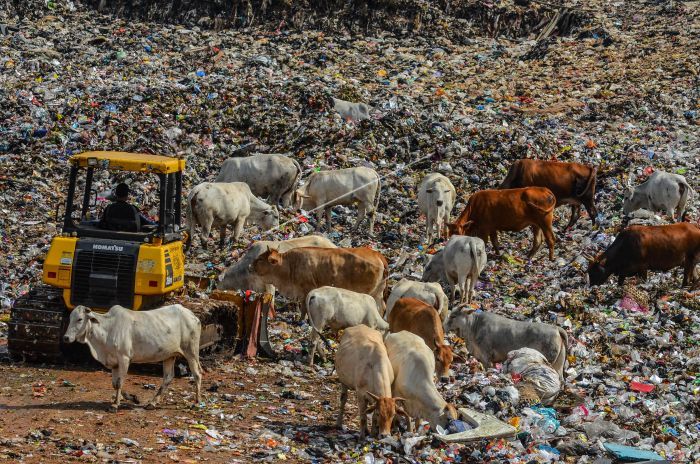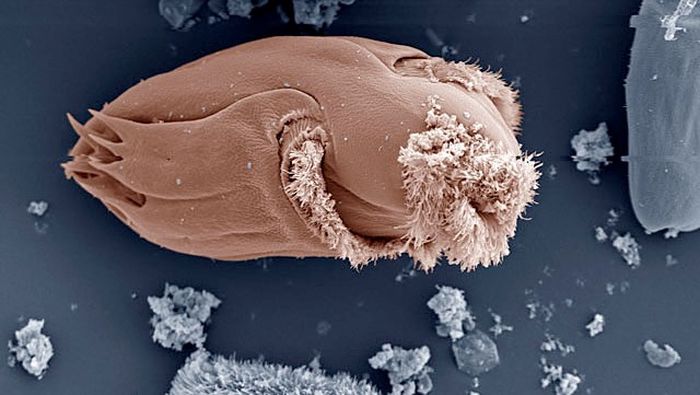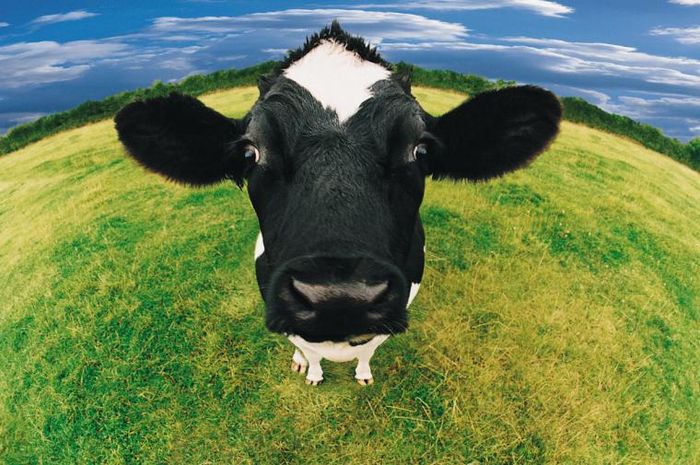Wallpaper Safari
–
Scientists discovered an interesting fact that some of the microbes present in the stomach of cows can eat certain types of plastic.
–
Nationalgeographic.co.id—Scientists discovered the interesting fact that a number of microbes which is in the stomach cow can eat types Plastic certain. Types Plastic that can be eaten by microbes these include polyethylene terephthalate (PET) used in soda bottles, food packaging, and synthetic fabrics.
Scientists found microbes This is in the fluid taken from the rumen, the largest compartment of the ruminant stomach. Ruminants are a group of hoofed animals, such as cow and sheep, which rely on microorganisms to help break down their food from rough vegetation. The rumen acts as an incubator for microbes these, which digest or ferment the food consumed by the cow or other ruminants, according to the University of Minnesota.
Researchers suspect that some microbes which hides in the rumen cow should be able to digest polyester, a substance whose component molecules are linked by ester groups. Because, because of their herbivorous diet, cow consume natural polyester produced by plants. This natural polyester is known as cutin.
As a synthetic polyester, PET has a chemical structure similar to this natural material. Cutin makes up most of the cuticle, or waxy outer layer of plant cell walls, and can be found in abundance for example in the skins of tomatoes and apples, said Doris Ribitsch, a senior scientist at the University of Natural Resources and Life Sciences in Vienna who researched microbes this.
“When fungi or bacteria want to penetrate such fruit, they produce enzyme capable of cleaving this cutin,” or breaking the chemical bonds within the substance, Ribitsch said Live Science. In particular, class enzyme called cutinases can hydrolyze cutin, which means they start a chemical reaction in which water molecules break the substance into smaller pieces.
Ribitsch and colleagues have isolated enzyme–enzyme that kind of microbes–microbes in the past and realized that cow may be a source of similar polyester-eating creatures. “These animals eat and degrade a lot of plant material, so it’s very likely that you can find microbes like that” that lives in the stomach cow, he said.
Also Read: In the future, our vanilla ice cream may be made from plastic waste

BETWEEN PHOTOS/Adeng Bustomi/pd.
–
A number of cows look for food in a pile of garbage at the Final Disposal Site (TPA), Ciangir Village, Tasikmalaya City, West Java, Wednesday (7/8/2019)
–
In fact, in their new study published in the journal Frontiers in Bioengineering and Biotechnology On July 2, 2021, researchers discovered that microbes from the rumen of cows can degrade not only PET but also two other types of plastic. The two types of plastic are polybutylene adipate terephthalate (PBAT) used in compostable plastic bags, and polyethylene furanoate (PEF) which is made from renewable plant-derived materials.
To assess how well these rumen-borne microbes could feed on plastic, the team incubated each type of plastic in rumen fluid for one to three days. They then measured the byproducts released by the plastic, to determine whether and to what extent microbes could break the plastic down into its component parts. Rumen fluid was most efficient at breaking down PEF, but it could also degrade all three types of plastic, the team reported.
Also Read: This Microscopic Robot Designed to Break Down Microplastics in the Ocean
The team then took DNA samples from the rumen fluid to get an idea of which specific microbe might be responsible for the plastic’s degradation.
Approximately 98% of the microbial DNA responsible for this decomposition is bacterial, with the most dominant genus being Pseudomonas. Several species of this genus have been shown to break down plastic in the past, according to a report in the journal Applied Microbiology and Biotechnology and Journal of Hazardous Materials.
Bacteria from the genus Acinetobacter also appear in high numbers in the rumet fluid. Several species of that genus have also been shown to break down synthetic polyesters, according to a 2017 report in Journal of Agricultural and Food Chemistry.

DAIRYBUSINESS
–
Using high-tech tools, Agricultural Research Service (ARS) scientists and their colleagues have delved into beef rumen microbial “soup,” the first of four stomach chambers where perennial plant fiber is converted into nutrients and energy.
–
Going forward, Ribitsch and his team want to fully characterize plastic-eating bacteria in rumen fluid and determine which specific enzymes they use to break down plastic.
If they can identify potentially useful enzymes for recycling plastic waste, they can then genetically engineer the microbes that produce these enzymes in large quantities without needing to collect the microbes directly from cow stomachs. In this way, these enzymes can be produced easily and cheaply, for use on an industrial scale, Ribitsch said.
Also Read: A giant cow the size of a van, why is it so big?
PROMOTED CONTENT
Featured Videos
– .


:quality(85)//cloudfront-us-east-1.images.arcpublishing.com/infobae/Q3VQJFC2M5DUBKXZTT6BUPIGTU.jpg)